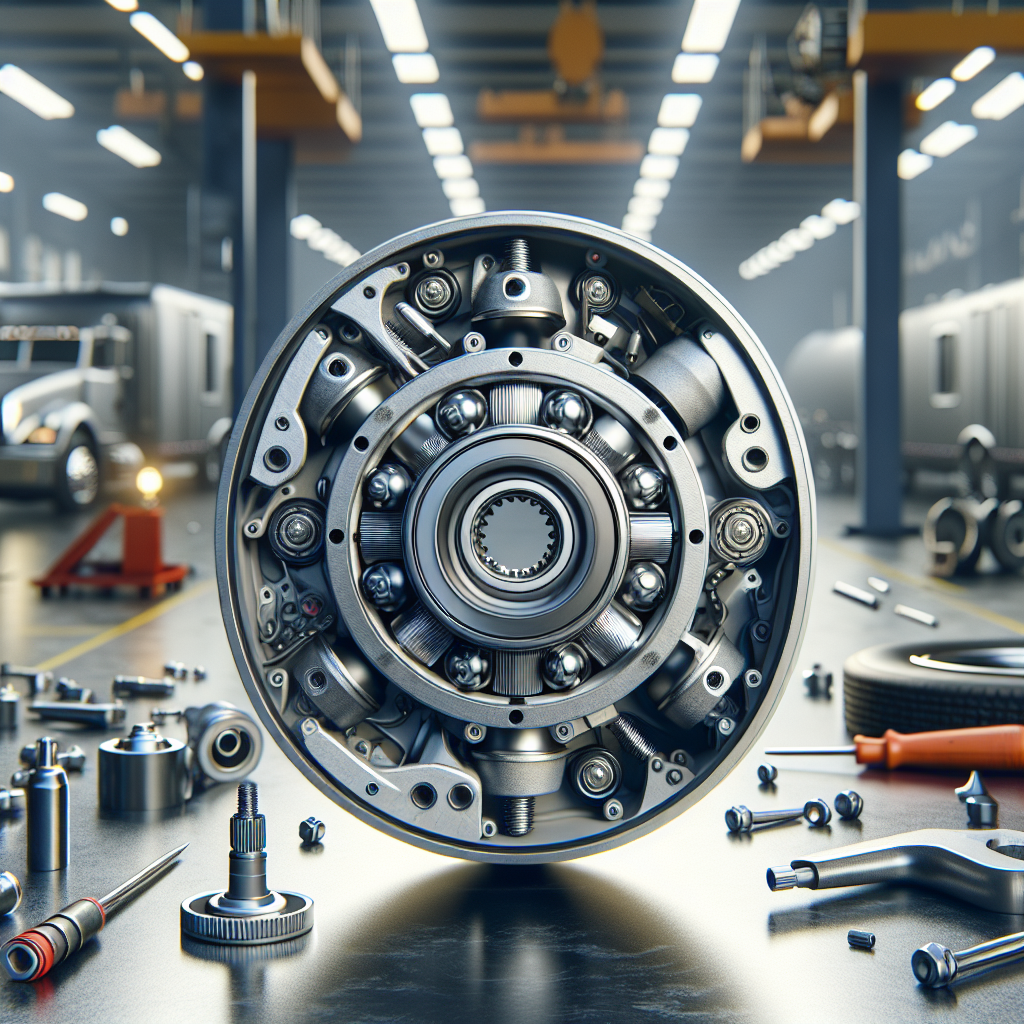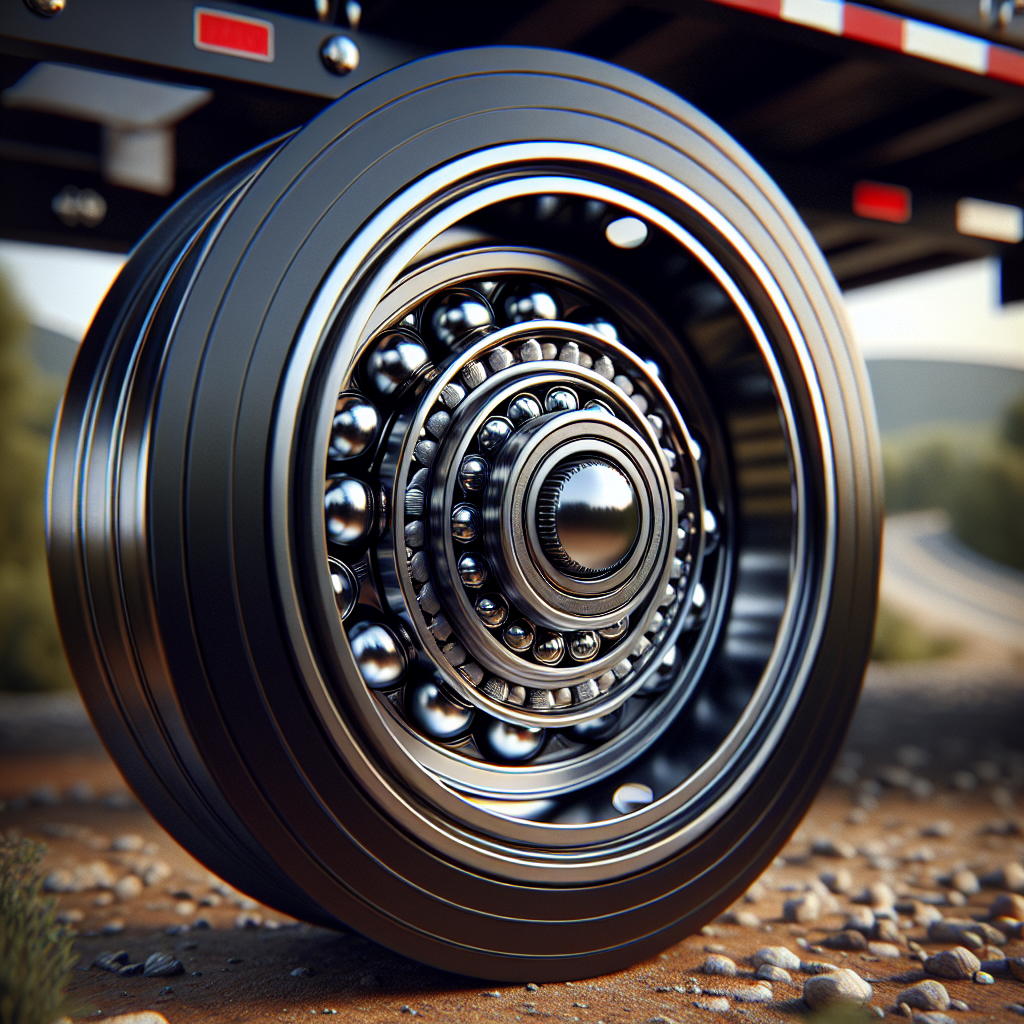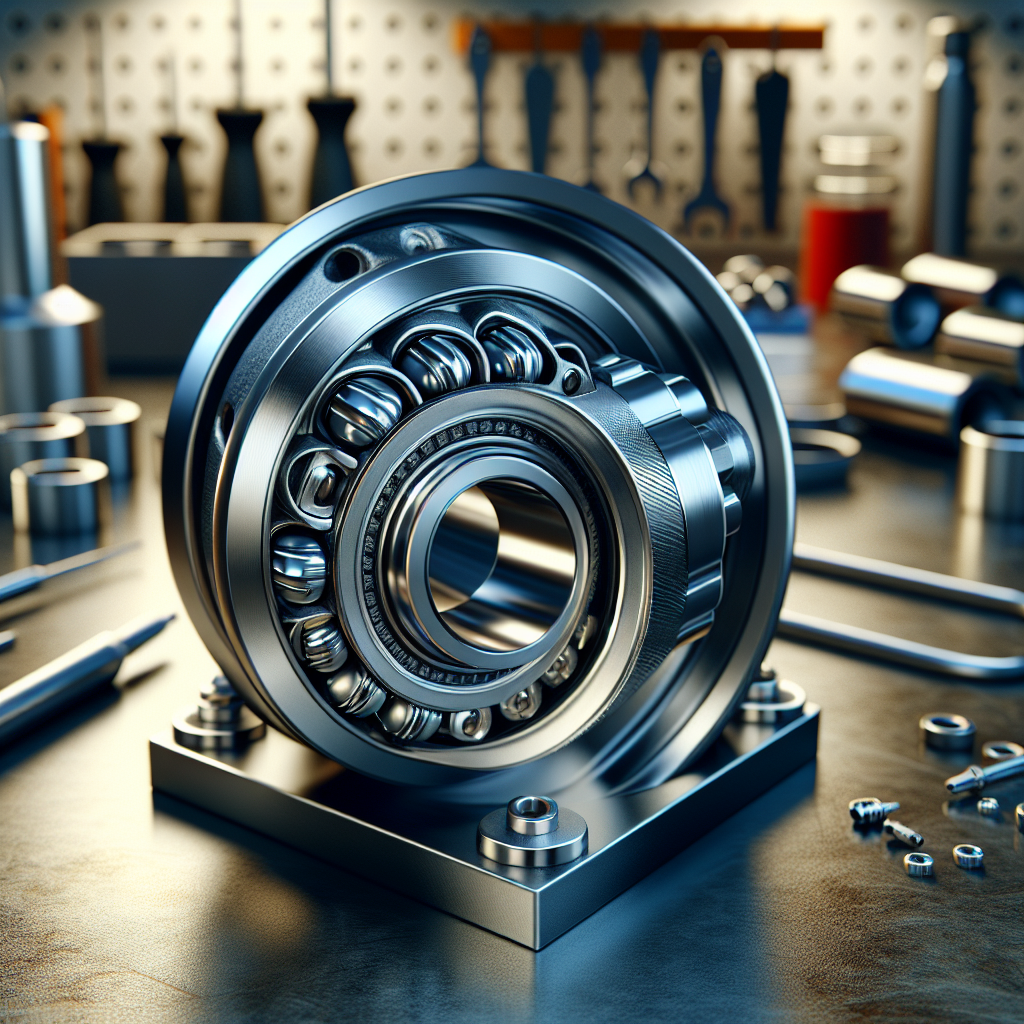

When it comes to ensuring the safety and efficiency of your trailer, understanding trailer wheel bearing end play is crucial. This term refers to the slight amount of axial movement that exists in a trailer's wheel bearings. While it may seem insignificant, proper management of end play is essential to prevent premature wear and potential failure of the wheel bearings, which can lead to hazardous situations on the road.
Excessive end play can result in a range of issues, including:
- Increased Tire Wear: Improper end play can cause uneven tire wear, leading to more frequent replacements.
- Wheel Bearing Damage: Excessive movement can stress the bearings, resulting in overheating and possible failure.
- Loss of Control: When wheel bearings fail, the stability of the trailer can be compromised, posing a serious risk to safety.
Monitoring and adjusting the end play of trailer wheel bearings is not just a maintenance task but a vital part of trailer safety. Regular checks can help identify potential issues before they escalate into catastrophic failures. To further enhance your trailer's safety, consider integrating advanced monitoring systems that provide real-time data on axle temperatures and tire conditions.
Tow with peace of mind, knowing that trailerwatchdog is standing guard.
Understanding the Importance of End Play
The significance of trailer wheel bearing end play cannot be overstated. This seemingly minor aspect of trailer maintenance plays a pivotal role in ensuring the longevity and safety of your vehicle. Understanding why end play matters is the first step in maintaining your trailer's overall health.
One of the primary reasons end play is crucial is that it directly affects the performance of the wheel bearings. Proper end play allows for the necessary lubrication to reach the bearing surfaces, reducing friction and heat buildup. Conversely, too much end play can lead to:
- Increased Bearing Wear: Bearings operating with excessive end play experience more movement, which can lead to faster deterioration.
- Overheating: Increased friction caused by poor lubrication can lead to overheating, potentially resulting in bearing failure.
- Noise and Vibration: Excessive movement can cause noticeable noise and vibration during towing, indicating a problem that needs immediate attention.
Moreover, maintaining correct end play is essential for ensuring that the trailer wheels remain properly aligned. Misalignment can lead to uneven tire wear and diminished handling, complicating your towing experience. Regular checks and adjustments to end play can help mitigate these risks and keep your trailer operating smoothly.
Common Causes of Excessive Wheel Bearing End Play

Identifying the common causes of excessive wheel bearing end play is essential for maintaining the integrity of your trailer. Several factors can contribute to this issue, and understanding them can help you prevent costly repairs and safety hazards.
Some of the primary causes include:
- Improper Installation: Incorrectly installed bearings can create too much end play. This often happens when bearings are not seated properly during installation, leading to misalignment.
- Worn Components: Over time, bearing races, spacers, and other related components can wear down, increasing the end play. Regular inspections can help catch this wear before it becomes a significant issue.
- Insufficient Lubrication: Lubrication is key in reducing friction and wear. If bearings are not adequately lubricated, it can lead to overheating and accelerated wear, resulting in increased end play.
- Environmental Factors: Exposure to dirt, moisture, and road debris can compromise the integrity of wheel bearings. Contaminants can enter the bearing assembly, causing damage and increasing end play.
By recognizing these common causes, trailer owners can take proactive measures to maintain their wheel bearings and ensure a safe towing experience. Regular maintenance and timely inspections are vital in addressing these issues before they escalate.
How to Measure Trailer Wheel Bearing End Play

Measuring trailer wheel bearing end play is a crucial step in ensuring the safety and performance of your trailer. Proper measurement can help you identify whether your bearings are within acceptable limits and prevent potential failures. Here’s how to effectively measure end play:
1. Gather Your Tools: You will need a dial indicator, a magnetic base, and a wrench to remove the wheel hub. Ensure that your tools are calibrated for accurate readings.
2. Prepare the Trailer: Park the trailer on a level surface and secure it with wheel chocks. Remove the wheel to access the hub and bearings. This step is essential for a clear measurement.
3. Set Up the Dial Indicator: Attach the dial indicator to the trailer frame or axle with the probe touching the wheel hub. Make sure it is secure and positioned correctly to take accurate readings.
4. Measure End Play: Gently push and pull the wheel hub in and out. Observe the dial indicator as it moves; the measurement displayed will indicate the amount of end play. Ideally, you should aim for end play within manufacturer specifications, typically between 0.001 and 0.005 inches.
Protect your trailer
5. Adjust as Necessary: If the end play exceeds the acceptable range, adjustments to the bearing preload may be required. This can involve tightening or loosening the adjusting nut, depending on the specific setup.
Regularly measuring your trailer wheel bearing end play is essential for maintaining safe towing practices. By following these steps, you can ensure that your trailer remains in optimal condition and reduce the risk of wheel bearing failure.
Managing and Adjusting Wheel Bearing End Play

Once you have measured your trailer wheel bearing end play, the next step is managing and adjusting it to ensure optimal performance and safety. Proper management not only extends the life of your trailer components but also enhances towing stability. Here are some key steps to effectively manage and adjust wheel bearing end play:
1. Understanding Bearing Preload: Wheel bearings require a specific amount of preload to function correctly. Preload is the force applied to the bearings that eliminate any excess end play. This ensures that the rollers within the bearings maintain contact with the race, preventing unnecessary wear.
2. Adjusting the Bearing Nut: To adjust the wheel bearing end play, locate the adjusting nut on the spindle. Using a wrench, either tighten or loosen the nut based on your measurement findings:
- Tightening: Should be done if the end play is excessive. This increases the preload on the bearings.
- Loosening: Should be done if the end play is too tight. This can prevent overheating and premature wear of the bearings.
3. Recheck Measurements: After making adjustments, it’s essential to recheck the end play with your dial indicator. This will confirm whether your adjustments brought the end play within the manufacturer’s specified range.
4. Regular Maintenance: Make it a habit to periodically check your wheel bearings for end play, especially before long trips. Regular maintenance helps catch potential issues early, saving you time and money in the long run.
By understanding how to manage and adjust your trailer wheel bearing end play, you can significantly enhance the safety and performance of your towing experience. Taking proactive measures will help ensure that your trailer remains roadworthy and reliable.
Preventative Measures for Trailer Wheel Bearing Maintenance

To ensure the longevity and reliability of your trailer, implementing preventative measures for trailer wheel bearing maintenance is crucial. By regularly maintaining your wheel bearings, you can avoid costly repairs and dangerous breakdowns. Here are some essential preventative measures to consider:
1. Regular Inspections: Schedule routine inspections of your trailer’s wheel bearings. Look for signs of wear, such as discoloration, rust, or abnormal sounds while driving. Catching these issues early can prevent major failures.
2. Proper Lubrication: Ensure that your wheel bearings are adequately lubricated. Use high-quality bearing grease and follow the manufacturer’s recommendations for lubrication frequency. Over time, grease can break down, leading to inadequate lubrication and increased friction.
3. Monitoring Temperature: Integrate a trailer monitoring system that tracks axle temperature and tire data. Excessive heat can indicate bearing failure, allowing you to address potential issues before they escalate.
4. Correct Loading: Ensure that your trailer is loaded within the manufacturer’s specified weight limits. Overloading can lead to increased stress on the wheel bearings, causing premature wear and failure.
5. Seasonal Maintenance: Pay special attention to your trailer during seasonal changes. For instance, after winter, check for signs of corrosion or damage from road salt and harsh weather conditions.
By following these preventative measures, you can significantly enhance the reliability of your trailer’s wheel bearings. Regular maintenance not only extends the life of the bearings but also ensures a safer towing experience. Tow with peace of mind, knowing that trailerwatchdog is standing guard.




